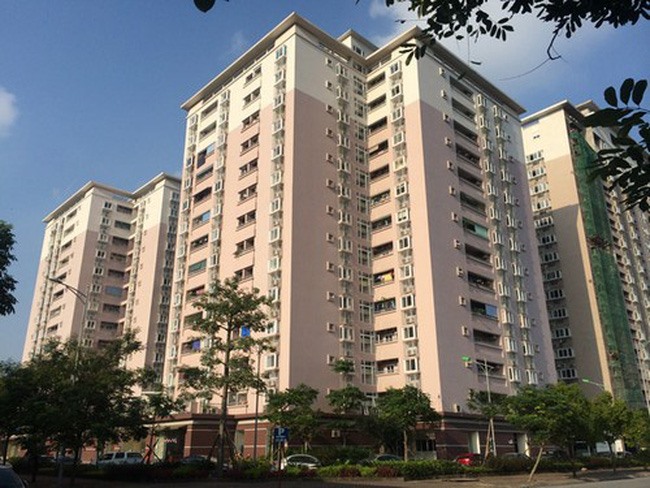 Opinion
Opinion

Education, health care and housing are all essential needs. The Vietnamese Government has focused on housing policy over the last decade, in particular building cheap apartments or reconstructing old or deteriorating houses. Thời báo Kinh tế Việt Nam (Việt Nam Economic Times) newspaper talks to some experts on how to address increasing housing demand.
 |
| The Vietnamese Government has focused on housing policy over the last decade, in particular building cheap apartments or reconstructing old or deteriorating houses. — Photo cafef.vn |
Education, health care and housing are all essential needs. The Vietnamese Government has focused on housing policy over the last decade, in particular building cheap apartments or reconstructing old or deteriorating houses. Thời báo Kinh tế Việt Nam (Việt Nam Economic Times) newspaper talks to some experts on how to address increasing housing demand.
Vũ Văn Phấn, deputy director of the Housing and Real Estate Market Management Agency
Housing development is the responsibility of the Government, society and people as a whole.
In its strategy for housing development by 2020, Việt Nam aims to build some 12.5 million m2 floor space of social houses in urban areas and meet the housing demand for about 80 per cent of university/college students and some 70 per cent of workers in industrial parks. In addition, we also hope to help some 500,000 poor households in rural areas refurbish their houses.
From now till the year 2030, Việt Nam will continue its efforts to improve the quality of social housing projects, particularly those for labourers. These residential areas will have essential infrastructure like transport, health care, education and cultural facilities.
In the National Strategy for Housing Development by 2020 with a vision to 2030, the Government will also focus on building more commercial houses to address the needs of better off people.
Under the current Housing Law, investment in housing development, particularly in cheap commercial housing projects, has to follow the market economy, with no subsidisation from the State.
Nguyễn Chí Dũng, deputy director of the Hà Nội Construction Department
Hà Nội faces many challenges in renovating its old buildings.
The city recently called for investment in a project to renovate 28 old residential buildings. Up to now, 18 investors have expressed interest in the project.
A principle in renovating the old buildings is that renovation costs should be borne by enterprises and residents. In other words, the interests of the people and the enterprises must be harmonised. At present, project financial problems have been settled between enterprises and residents, but planning has got stuck as many older residents don’t want to leave.
Following initial surveys, some investors find that twice as many people as are permitted to live in these residential buildings are occupying them. This had become a big problem for investors.
Hà Nội authorities have called for the Government’s help to solve the problem to ensure the project can be executed and the people and enterprises’ rights are protected.
According to the law, in any old building classified as the D level all residents in that building must move elsewhere with support from local authorities. But many refuse to co-operate with local authorities and insist in living in their old apartments.
If we want to renovate old buildings, besides having good mechanism or policy we also need to win support from people living in the buildings.
Nguyễn Mạnh Hà, President of the Việt Nam Association for Property Brokers
Việt Nam has rather comprehensive mechanisms and policies on social housing development. They are appropriate with the country’s current socio-economic conditions. But applying these policies to reality remains a conundrum.
Enterprises investing in real estate should consider it their responsibility to participate in the Government’s policy of social housing development and in some other segments of the industry.
Social policies, including social housing development, plays a very important role and is a driving force in the course of national development. Of course, to achieve the goal of developing social housing development as written in the National Strategy on Housing Development, we also need the involvement of the political system as well as the beneficiaries.
Nguyễn Xuân Quang, President of the Nam Long Investment Joint Stock Company
Social housing and low cost commercial housing projects are important components in the national strategy for housing development and management. Of course, they are also closely associated with the urban development and management plan.
In the last decade, we have made a very good legal corridor for the development and management of social housing schemes nationwide.
Government Decree 100/NĐ-CP/2015 on social housing management and development has achieved certain successes. It has helped many people with low incomes get apartments of their own in major cities like Hà Nội and Hồ Chí Minh City.
However, there remain two stumbling blocks in the course of social housing development. For one, land clearance and compensation fees are still high and the Government should give a framework on the costs for infrastructure construction and other activities in social housing development projects — VNS.









